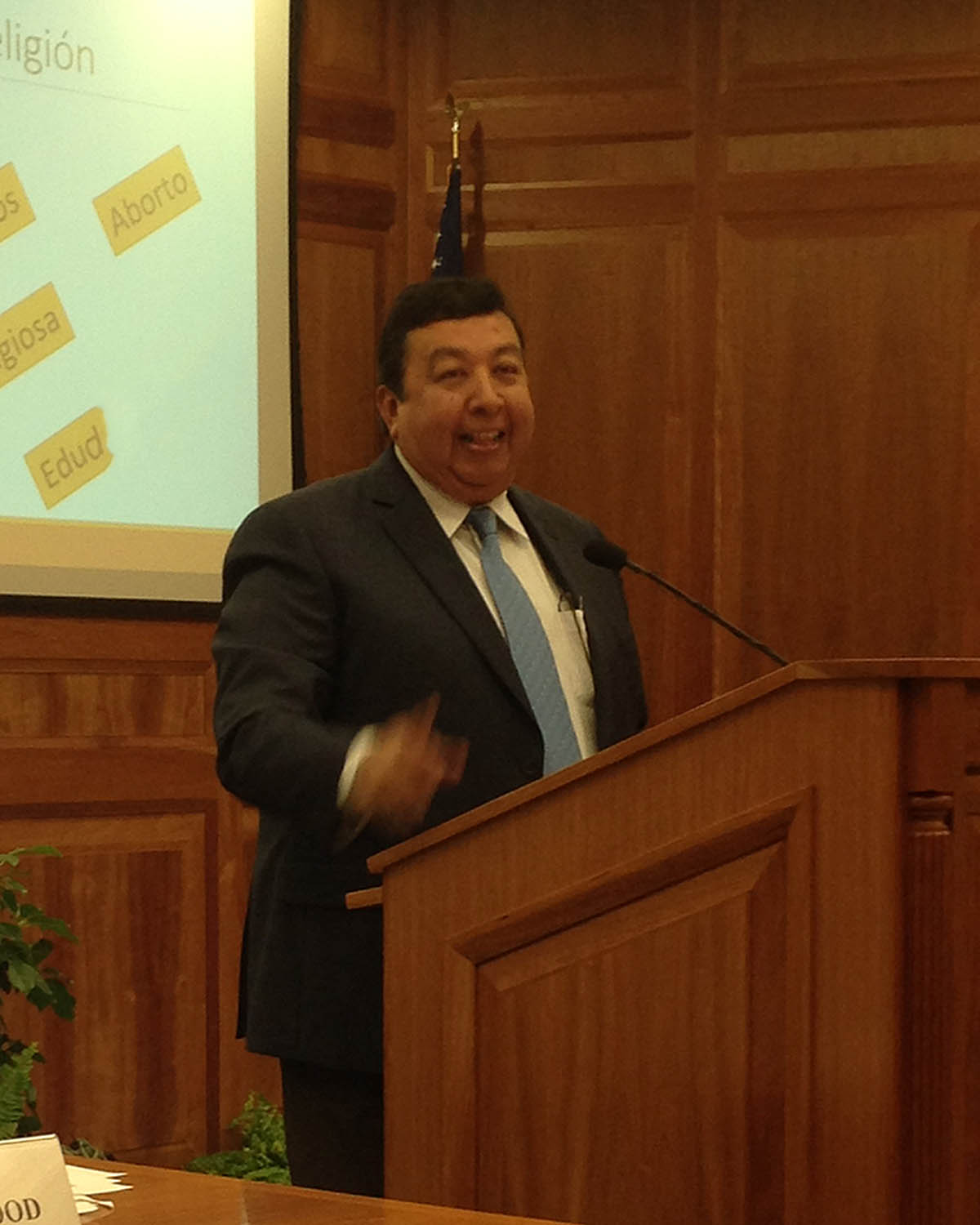Symposium 2015: Latin America – Government Perspectives (Tuesday 11:15 am session)

Reported by Alex Biggs
Mark Wood, International Fellow, International Center for Law and Religion Studies, moderated this session. Presenters were Luis Fernando Mendoza Jiménez, Counsel of the Legislative Assembly of Costa Rica; César Jáuregui Robles, Attorney, Lozano Gracia and Associates; and Luis Fernando Morales Núñez, Director General of the Administration of Federal Real Estate Assets, INDAABIN.
The first presenter was Luis Fernando Mendoza Jiménez. He began by noting that the majority of people in Costa Rica are tolerant of religions, but it was not always like that. For instance, during colonial times, the Catholic Church was seen and accepted as the only religion. Now the majority of Costa Ricans are members of various Christian religions. He explained how religions have helped resolve societal problems in Costa Rica. For example, when there were political demonstrations against the opening of the telecommunications and electrical market, the Catholic Church was able to step in, calm the demonstrations, and help resolve the conflicts. He mentioned that the Catholic Church and other religions continue to play such a role in resolving social issues throughout Central America.
César Jáuregui Robles was next to address this session. He spoke about the history of religious tolerance within Mexico. He explained that although the Mexican Constitution allows religious freedom and expression, that churches and citizens do not take advantage of these important rights. He advocated for people to begin to express their religious beliefs in order to influence social policies and developments.
The final speaker was Luis Fernando Morales Núñez. He explained the Mexican constitutional reforms of 1992. These reforms gave religions a legal identity so that they could own private property. The real estate that was built before 1992 was nationalized and is controlled by the Administration of Federal Real Estate Assets. Mr. Morales Núñez explained that his department has helped maintain religious buildings and guaranteed continued access to these buildings for the public and the religious organizations that use these buildings.